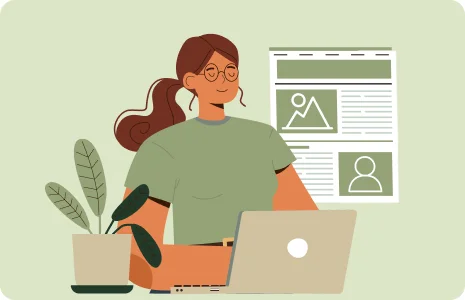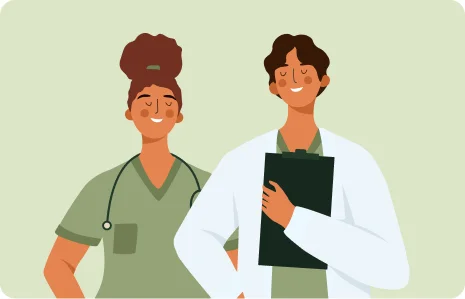Psychiatric providers are increasing in numbers as the needs in our communities continue to become more prevalent. To become a provider in the mental health field, one must be receptive to the complexity that the field brings. Although reasons for entering the psychiatric sector may differ from those of each other, we can all agree on one point: the reality of the field. There are various significant reasons why the importance of mental health is growing in today's culture. As a result of mass shootings, suicide, aging, the current opioid crisis, and isolation from COVID-19, the need for more providers in this field continues to grow. This desire to effect change and shed light on the misconceptions that hinder many from seeking treatment is why so many current psychiatric providers choose, day in and day out, to pursue mental healthcare.
First, let's take a look at some rising issues in our communities that increase the need for accessible mental healthcare:
Suicide:
In order to minimize suicide rates, it is essential to identify the characteristics of people who die by suicide without obtaining treatment, typically after a fatal first attempt. Most persons who take their own lives have never sought treatment from a psychiatrist or been diagnosed with a mental disorder. Examining what factors might lead to suicide, some have disregarded this vast demographic in favor of looking at prior suicide attempts. Tang, et al., found that those who do not seek mental health care are more likely to attempt suicide utilizing violence and are less likely to have a psychiatric diagnosis history of suicidal conduct (Tang et al., 2022). Several correlations between not receiving services and belonging to a minority ethnic group and experiencing psychosocial stress were found.
Aging:
As the world's population ages, mental illness will become an even more significant public health issue. The world's population thinks growing older is a great accomplishment, but there are those who feel like growing old is a burden. With the development of cognitive changes, as we age, there are psychological changes that cannot be reversed. The prevalence of dementia and Alzheimer's have grown immensely over the years. New research and treatments have helped many disorders advance, but a diagnosis still presents emotional problems.
Isolation:
The global spread of the coronavirus (COVID-19) pandemic had devastating effects on people's physical and mental health and continues to be a leading cause of mortality in many parts of the world. Quarantines and lockdowns may have medical, psychological, social, and economic implications, despite being enacted to prevent the spread of COVID-19. The free world has been traumatized on every level by the COVID-19 pandemic, including the physical, psychological, emotional, social, and economical. Anxiety, stress, dread, fear-induced overreactive behavior, frustration, guilt, boredom, concern, anxiousness, helplessness, loneliness, insomnia, and depression are all possible outcomes of social withdrawal, isolation, and lockdown (Ganesan et al., 2021). For this reason, mental health providers and state and federal governments must work together swiftly to implement new mental health policies and expand access to mental health care for all.
Opioid Crisis:
Around 52,404 people died in 2015 from a drug overdose, while an estimated 64,000 died in 2016 from the exact cause (Beeber, 2018). Despite these daunting obstacles to mental health care, psychiatric providers still have a chance to make a difference in the world, thanks to the emergence of new medicines and ways to care.
Gun Violence:
An increasing movement to adopt extreme risk protection order (ERPO) laws (gun violence restraining order laws) in state legislatures around the country offers a chance to save lives as the plague of gun violence continues in the United States (Gondi et al., 2019). The mental health community should get ready to work with state and federal groups to prevent gun violence and protect people on a daily basis through integrated, team-approached efforts. At a time when more than 100 Americans lose their lives every day due to gun violence, the medical community has to join the national fight to reduce gun violence and save lives.
So, as we can see, there are many issues prevalent in society that implicate the need for increased mental healthcare. What can we do to fill the gaps?
Where providers can go from here:
Raise awareness, and get plugged in to resources that can help your patients! If you're already in the mental health field, great - keep educating yourself, stay in tune with best practices, and engage with your community. If you're in another field, make sure your patients are receiving the mental health care they need, and find good referral sources near them for quality access to care. The mental health profession expands to include the patients and the people involved in their lives. It has a great impact upon our neighborhoods and communities as a whole.
With the recent growth of gun violence, the aging population, and isolation, mental health has become the center of global attention. However, there is a noticeable shortage of mental health providers available to assist with increasing awareness of needs. To combat the shortage of psychiatric providers, and to maximize the capacity of the behavioral health workforce, the National Council for Behavioral Health's (NCBH) Medical Director Institute suggests allowing APRNs and PAs, like those who work with iTrust Wellness Group, to practice to the full extent of their education and training (Phoenix, 2019). Legislature is being proposed even here in South Carolina to advocate for independent practice for mid-level providers across all scopes of practice.
There is a wide array of responses when asking providers why they chose the field of mental health. Some might say they feel called to serve this way, while others might want to help those who are misdiagnosed because they have experienced similar difficulties in their families or social circles. Perhaps they lucked into an exciting new field of work. Whatever the motivation, we can all agree there is a critical shortage of mental health professionals. iTrust Wellness Group is here to fill in the gaps of our community's mental health needs and provide excellent mental health care with these ongoing local and global concerns.
References
Beeber, L. S. (2018). Mental health issues and substance use in the united states: Pulling the power levers. Journal of the American Psychiatric Nurses Association, 25(1), 19–26. https://doi.org/10.1177/1078390318811572
Ganesan, B., Al-Jumaily, A., Fong, K. K., Prasad, P., Meena, S., & Tong, R.-Y. (2021). Impact of coronavirus disease 2019 (covid-19) outbreak quarantine, isolation, and lockdown policies on mental health and suicide. Frontiers in Psychiatry, 12. https://doi.org/10.3389/fpsyt.2021.565190
Gondi, S., Pomerantz, A. G., & Sacks, C. A. (2019). Extreme risk protection orders. Academic Medicine, 94(11), 1649–1653. https://doi.org/10.1097/acm.0000000000002935
Kiely, K. M., Brady, B., & Byles, J. (2019). Gender, mental health and ageing. Maturitas, 129, 76–84. https://doi.org/10.1016/j.maturitas.2019.09.004
Mudd, A., Feo, R., Conroy, T., & Kitson, A. (2020). Where and how does fundamental care fit within seminal nursing theories: A narrative review and synthesis of key nursing concepts. Journal of Clinical Nursing. https://doi.org/10.1111/jocn.15420
Phoenix, B. J. (2019). The current psychiatric mental health registered nurse workforce. Journal of the American Psychiatric Nurses Association, 25(1), 38–48. https://doi.org/10.1177/1078390318810417
Tang, S., Reily, N. M., Arena, A. F., Batterham, P. J., Calear, A. L., Carter, G. L., Mackinnon, A. J., & Christensen, H. (2022). People who die by suicide without receiving mental health services: A systematic review. Frontiers in Public Health, 9. https://doi.org/10.3389/fpubh.2021.736948




